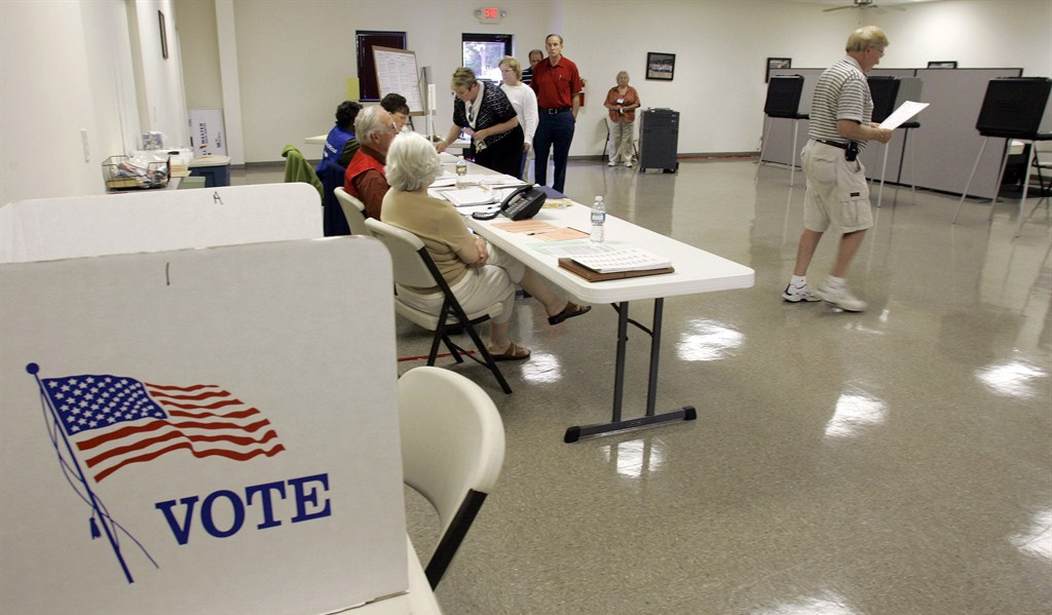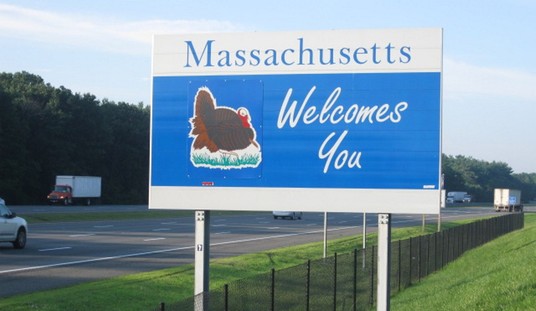As RedState reported Sunday, the Supreme Court race in North Carolina was (and remains as of this writing) the lone statewide race yet to be decided.
To recap, the morning after the election, the Republican candidate, Jefferson Griffin, was up by around 10,000 votes over Democrat state Supreme Court Justice Allison Riggs.
Throughout what was supposed to be a 10-day canvass period for county boards of elections, Griffin's lead gradually shrunk as the BOEs continued counting absentee ballots including those that came in on Election Day as well as those received from military-overseas voters, which had until Thursday the 14th (the day before the county canvass deadline) to be received.
There were also the provisional ballots that had to be reviewed and decisions to be made on which ones could be included in the totals.
But on Friday night, the state's largest county - Wake - also a Dem-heavy county, finally posted their provisionals and updated their totals with numbers that were just enough to pull Riggs ahead of Griffin by about 150 votes. Several other counties including one semi-big Democrat county weren't done, so the deadline got extended to Monday.
READ MORE: What's Going On? Terrible Optics From NC Board of Elections As Supreme Court Race Still Not Decided
Needless to say, this prompted questions and concerns about the process, with some asking why were there hard election deadlines if counties were going to be allowed to break them. Further, for some folks, it seemed awfully convenient that the state's largest and most Dem-heavy county didn't finally update their numbers until it was known how many Riggs would need to move ahead of Griffin.
In an update to all of this, all but two of North Carolina's 100 counties have finished their canvassing as of Monday night, with the remaining two (Duplin and Northampton) thought to be delayed on technical grounds with no number changes expected.
Riggs is now ahead by 625 votes. How did we get to this point? Andy Jackson from the John Locke Foundation explains:
3/4
— Andy Jackson (@andyinrok) November 19, 2024
County boards of elections can and should count and report absentee ballots (except for some UOCAVA) by the Friday after election day rather than 10 days later.
That provision is included in a Hurricane Helene relief bill currently before the General Assembly. #ncpol #ncga
5/6
— Andy Jackson (@andyinrok) November 19, 2024
Under the old rules, those provisional ballots (and others not counted because of deficiencies) would have been counted on election day.
The Helene bill also includes having provisional ballots dealt with by 3 days after election day. #ncpol
Unlike with absentee ballots, I am not sure that county boards, especially smaller ones, currently have the capacity to deal with all provisional ballots on top of their other work in the first few days after election day. #ncpol
— Andy Jackson (@andyinrok) November 19, 2024
Some have speculated that post-election ballot curing, which Democrats turned out in full force to undertake, was a big factor in how Riggs emerged on top in the race (as Jackson indicated above):
Republicans should be thrilled with early voting efforts but failed to get out the vote after Election Day.
— Bryan Anderson (@BryanRAnderson) November 19, 2024
Dems had folks cure their provisionals at unprecedented levels. The GOP hadn't prepared for that. That more than anything is why the results panned out the way they did.
For example, The Harris/Walz campaign is fully mobilized to cherry pick Democratic voters to get their votes to count.
— Mike Rusher (@mjrusher) November 10, 2024
If they get enough "resources" to count additional votes for Riggs(D) post election, Riggs(D) can pull ahead of Griffin (R) despite the sizable lead. #ncpol pic.twitter.com/1AEj4BXD7w
Meanwhile, Griffin's campaign and the NCGOP filed a lawsuit Monday alleging the state board of elections failed to get them the documents and data they requested Saturday in a timely matter that would have put them in a better position to know whether calling for a recount was something they should do (prior recounts in previous high profile statewide races in the state have not changed the outcome).
There's been some back and forth since then about whether the elections board finally gave them what they needed:
As our press release said, they haven’t earned any benefit of the doubt regarding their actions. Definitely saving that article where the NCSBE lawyer is making comments about our legal team in the media… #NCPOL https://t.co/QLH0W8od9q
— Matt Mercer (@mattmercer) November 19, 2024
On Tuesday morning, about 15 minutes or so before the deadline to request a recount, it was reported that Griffin has indeed done just that:
Republican Jefferson Griffin has requested a recount in his NC Supreme Court race against Democratic incumbent Allison Riggs.
— Kyle Ingram (@kyle_ingram11) November 19, 2024
Riggs leads Griffin by 625 votes. #ncpol
A win from Griffin would make the state's court 6-1 GOP. A win from Riggs would keep it 5-2 GOP, giving Democrats hope of flipping the court back in their favor in 2028, where there will be three NC Supreme Court races featuring Republican incumbents. As always, we'll provide updates on this race when they come in. Stay tuned.
RELATED: JD Vance Makes 'Toxic Masculinity' Great Again After Hearing Woman Scream at North Carolina Rally














Join the conversation as a VIP Member